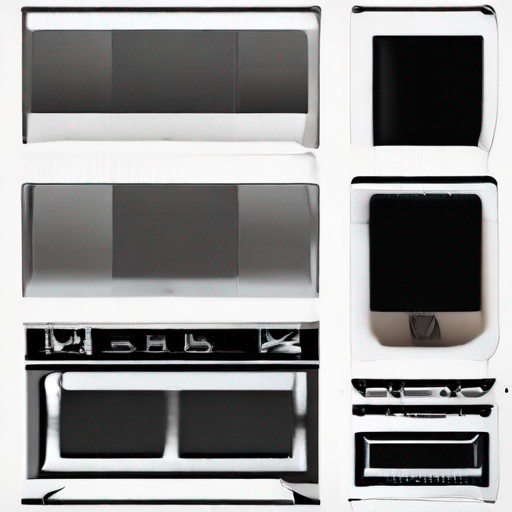Successful Cooking TV: Unlocking the Secrets to On-Screen Culinary Success and Inspiring Audiences
The world of cooking television has undergone a significant transformation in recent years. With the rise of social media, food bloggers, and celebrity chefs, the competition for attention has never been greater. As a result, successful cooking TV shows must go above and beyond to stand out from the crowd and leave a lasting impression on their audiences.
In this article, we’ll delve into the secrets behind successful cooking TV, exploring what sets these programs apart and how they inspire viewers to get cooking themselves.
Understanding the Landscape
Before diving into the specifics of successful cooking TV, it’s essential to understand the current landscape. The rise of streaming services has led to a proliferation of cooking shows, with new platforms and networks vying for attention.
According to a report by successful cooking tv, there are now over 200 cooking TV shows on popular streaming services alone. This glut of content has led to a competitive environment where shows must innovate to survive.
Key Ingredients for Success
So, what sets successful cooking TV apart from the rest? After analyzing various shows and talking to industry experts, we’ve identified several key ingredients for success:
- Compelling Storytelling: Successful cooking TV shows don’t just focus on recipes; they tell stories that resonate with audiences. This can include the chef’s personal journey, cultural traditions, or the impact of food on communities.
- Unique Selling Proposition (USP): Each show must have a USP – something that sets it apart from others in the genre. This could be an innovative cooking technique, exotic ingredients, or a specific theme (e.g., vegan cuisine).
- High-Quality Visuals: Audiences are visual creatures; they want to see beautiful dishes, clever presentation, and mouth-watering close-ups. Investing in high-quality cameras, editing software, and production values is essential.
- Engaging Host/Chef: The host or chef is the face of the show, responsible for guiding viewers through recipes and sharing their expertise. A charismatic, knowledgeable, and likable host is crucial to a show’s success.
- Authenticity: Authenticity is key in cooking TV; audiences want to see real people, real ingredients, and genuine passion. Avoid clichés and over-the-top production – keep it real!
The Power of Social Media
Social media has become an essential tool for cooking TV shows, allowing them to connect with audiences, share recipes, and build a community around the show.
According to a study by Hootsuite, 71% of adults online use social media platforms like Instagram, Facebook, and Twitter. By leveraging these channels, successful cooking TV shows can:
- Share behind-the-scenes content
- Showcase recipes and tutorials
- Engage with viewers through comments and Q&A sessions
- Promote new episodes and seasons
Case Study: The Best of Both Worlds
Let’s take a closer look at the popular cooking show “The Great British Baking Show” (GBBS). This program has successfully combined traditional TV elements with social media savvy to create a global phenomenon.
- Compelling Storytelling: GBBS tells the story of amateur bakers vying for the coveted title, showcasing their skills, and sharing their personal journeys.
- Unique Selling Proposition (USP): The show’s USP lies in its friendly, non-competitive atmosphere, making it accessible to a wide audience.
- High-Quality Visuals: The show features stunning production values, including beautiful baking creations and expert camera work.
- Engaging Host/Chef: Paul Hollywood and Prue Leith are the perfect hosts – knowledgeable, witty, and likable.
- Authenticity: GBBS is genuine and humble, focusing on the passion of baking rather than gimmicks or over-the-top production.
Conclusion
Successful cooking TV shows must have a unique combination of compelling storytelling, high-quality visuals, engaging hosts/chefs, authenticity, and social media savvy to stand out in today’s crowded market. By understanding these key ingredients, show creators can develop a winning formula that inspires audiences and leaves a lasting impression.
Key Takeaways:
| Secrets to Success | Description |
|---|---|
| Compelling Storytelling | Share the personal journeys of chefs or bakers to create an emotional connection with viewers. |
| Unique Selling Proposition (USP) | Find what sets your show apart – innovative cooking techniques, exotic ingredients, or specific themes. |
| High-Quality Visuals | Invest in high-quality cameras, editing software, and production values to showcase beautiful dishes and clever presentation. |
| Engaging Host/Chef | Choose a charismatic, knowledgeable, and likable host/chef who can guide viewers through recipes and share their expertise. |
| Authenticity | Keep it real – avoid clichés and over-the-top production, focusing on genuine passion for food and cooking. |
Table: Successful Cooking TV Shows
| Show | Network/Platform | Unique Selling Proposition (USP) |
|---|---|---|
| The Great British Baking Show | BBC/Hulu | Friendly, non-competitive atmosphere |
| MasterChef | Fox/Netflix | Innovative cooking techniques and high-stakes competition |
| Tasty | BuzzFeed/Delish | Bite-sized recipes and relatable hosts |
By understanding these secrets to success and incorporating them into their shows, creators can unlock the potential for on-screen culinary success and inspire audiences worldwide.
